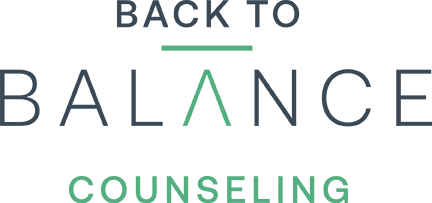Most commonly, we utilize an evidence based approach called Cognitive Behavioral Therapy or (CBT). This type of therapy is based on the notion that we can change the way we feel by changing the way we think. Cognitive Behavioral Therapy reveals the relationship between our thoughts, feelings, and the behaviors that follow. This approach allows people to learn that their perceptions can have a powerful impact on how they respond to situations.
A main focus of CBT treatment usually includes making efforts to change thinking patterns that may not be beneficial. This process begins with learning the various types of thinking distortions and learning which ones are the most problematic for you. Cognitive Behavioral Therapy stresses the importance of comparing the distorted thought against reality. Is there really any evidence supporting this thought? What is this thought even based on? This dialogue allows us to create more realistic and accurate thoughts that are more based on facts and less on feelings. Practicing reframing distorted thoughts to more helpful thoughts also allows for a better understanding of the behavior and motivations of other people. When we understand that the behaviors of others often have nothing to do with us, it is easier to process our feelings in a more productive way.
Something we hear often from our clients is that they wake up frequently with this feeling of dread. There is this automatic assumption that every aspect of the day will be bad. This exaggerated perception taints the outlook for the day, and the client loses perspective. This outlook blocks the client from being able to fully experience anything that may disprove the belief that the day will be bad. Throughout the day, the client focuses on all of the unfavorable things happening, which reinforces the negative thinking pattern. This results in a negative thinking cycle that will get worse over time.
The daily build up of these thoughts over time not only impacts your daily functioning, but your future functioning as well. Of course negative thinking leads to unhappiness and distress, but it also creates an obstacle for your self-improvement. Sometimes just the thought of making a change is overwhelming, and when you think in an all or nothing way, you’re not able to see that small steps can get you to where you want to be. This results in feeling stuck and hopeless, which feeds the cycle of negative thinking.
Cognitive Behavioral Therapy is also based on the principle that psychological stressors can be attributed to learned patterns of unhelpful behavior. Avoidance is an unhelpful behavior that we see most frequently. Through the use of CBT, client’s learn coping strategies to learn how to face fearful situations rather than avoiding them. Time is spent discussing fears and examining thoughts tied to those fearful situations. Once the faulty thinking is changed to something more realistic, we may role-play to prepare for handling a similar situation in the future.
So how does this work for me?
Since CBT treatment is often short-term, it allows us to create a good outline of things you would like to achieve. We will work collaboratively to develop goals, and monitor those goals regularly throughout the course of treatment. The goals we create will be used to address current problems and concerns. It’s important that we start with an understanding that while we have expertise on the theoretical framework, we are not experts on you. You know yourself best, so we will rely on you to be the expert on you. We’re also going to remind you that you are a powerful human that is capable of choosing more positive thoughts and behaviors. Of course we can’t choose the thoughts or behaviors for you, but we will provide materials and support to help you along the way.


